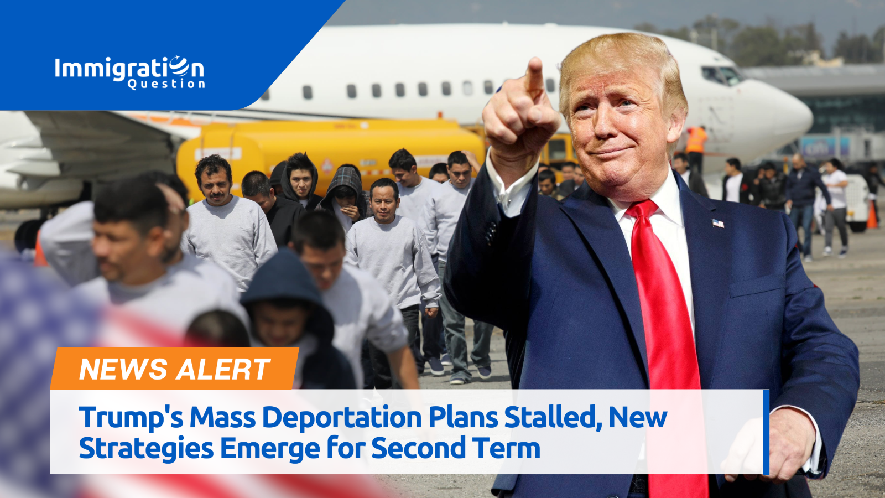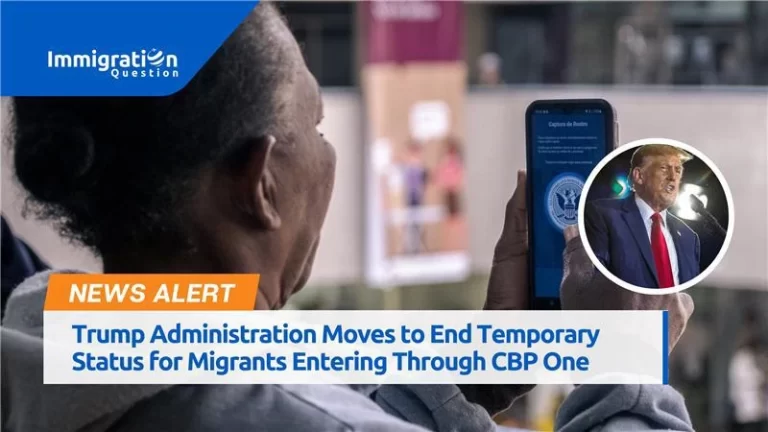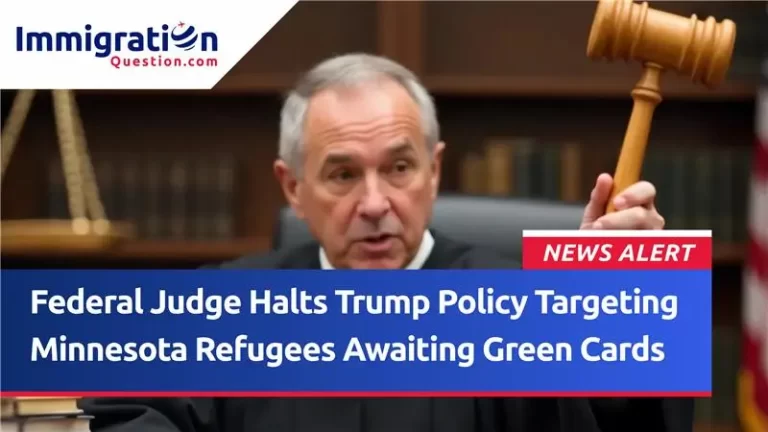Trump’s Mass Deportation Plans
Donald Trump has long promised to deport millions of undocumented immigrants, but his new White House bid brings more specifics to the table. This time, Trump is focusing on invoking wartime powers, relying on like-minded governors, and using the military to achieve his immigration goals.
The Gap Between Ambition and Reality
During Trump’s first term, his goal of mass deportations faced numerous legal, fiscal, and political hurdles. According to the Department of Homeland Security, an estimated 11 million undocumented immigrants were in the U.S. as of January 2022. While President Barack Obama achieved 432,000 deportations in 2013, Trump’s annual deportation numbers never surpassed 350,000.
Despite this shortfall, Trump and his chief immigration policy architect, Stephen Miller, have signaled they plan to take a different approach if elected again in 2024. Lessons learned from their first term and an increase in Trump-appointed judges could help them pursue more aggressive deportation policies.
Legal Barriers and Logistical Challenges
Joseph Nunn, counsel at the Brennan Center for Justice at New York University’s School of Law, said Trump’s new plans could potentially be lawful but logistically complex. “There might not be a lot of legal barriers,” Nunn said. “It is going to be logistically extraordinarily complicated and difficult. The military is not going to like doing it, but it is possible, so it should be taken seriously.”
When asked how Trump’s pledge would be carried out, the campaign said Trump plans to launch the largest deportation program in U.S. history, though without elaborating in detail. Campaign spokeswoman Karoline Leavitt stated that Trump “would marshal every federal and state power necessary to institute the largest deportation operation of illegal criminals, drug dealers, and human traffickers.”
Overcoming Legal Challenges: Alien Enemies Act and State Cooperation
To overcome inevitable legal obstacles, Trump has suggested invoking the Alien Enemies Act of 1798, which allows the president to deport noncitizens from countries at war with the U.S. Texas Gov. Greg Abbott has also floated the idea that illegal immigration constitutes an “invasion,” which could justify state enforcement. While this theory has not yet succeeded in court, some legal experts believe judges may hesitate to challenge a president’s interpretation of foreign aggression.
The Alien Enemies Act could allow Trump to sidestep laws that prohibit the military from engaging in civilian law enforcement. Trump has said he would deploy the National Guard, whose troops can be activated by state governors. Miller has indicated that Republican governors would send troops to other states that refuse to participate in mass deportations.
“The Alabama National Guard is going to arrest people without papers in Alabama, and the Virginia National Guard in Virginia,” Miller said on “The Charlie Kirk Show.” “And if you’re going to go into an unfriendly state like Maryland, Virginia would do the arrests in Maryland.”
Challenges in Funding and Execution
Another major hurdle for Trump’s mass deportation plans is funding. U.S. Immigration and Customs Enforcement (ICE) is currently funded for 41,500 detention beds per year, raising questions about where Trump would house individuals awaiting deportation. Without enough facilities, it could be difficult to hold deportees, particularly if their home countries are slow to accept them back. Miller has suggested the possibility of setting up large-scale staging areas near the border, likely in Texas.
In addition to logistical difficulties, ICE officers are methodical in their work, often requiring hours of surveillance to apprehend a single target. Former Obama administration official John Sandweg noted that while Trump could technically bring in the military, it would be nearly impossible to achieve the mass deportations he envisions.
Political and Social Implications – Trump’s Mass Deportation Plans
Trump’s mass deportation plans also face political resistance. Many local governments have adopted policies limiting cooperation with federal immigration authorities, reducing the number of people available for deportation. Furthermore, a significant portion of undocumented immigrants live in mixed-status families. Pew Research Center estimates that 70% of households with at least one undocumented person also have a legal resident. Mass deportations could tear apart families and disrupt communities.
There is also concern about how military involvement in deportations would affect morale. “The military is going to see this and say this is not the kind of duty that soldiers signed up for,” Nunn remarked. “This is getting the military involved in domestic politics in a way the military doesn’t like to do.”
Fear and the Reality of Deportation
Even without large-scale deportations, Trump’s rhetoric alone can have a significant impact on immigrant communities. Adam Goodman, a history professor at the University of Illinois, Chicago, argues that the threat of mass deportation can create fear, even if it isn’t carried out. In 2019, Trump announced that ICE would begin deporting millions of undocumented immigrants. Ultimately, only 35 arrests were made, but the fear generated was widespread.
Trump himself acknowledged the political challenges in a recent interview with Sharyl Attkisson. “You put one wrong person onto a bus or onto an airplane and your radical left lunatics will try and make it sound like it’s the worst thing that’s ever happened,” Trump said, while still pledging to swiftly deport “criminals.”
As Trump’s 2024 campaign unfolds, his vision for immigration enforcement will likely remain a contentious and polarizing issue.
To stay updated and informed, keep an eye out for our news section or drop your immigration queries for professional attorneys to reply on Immigration Question.










